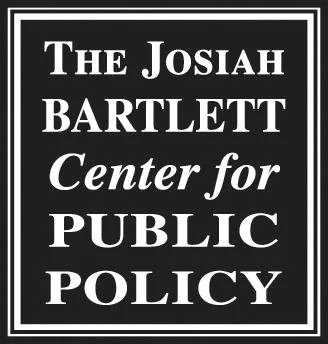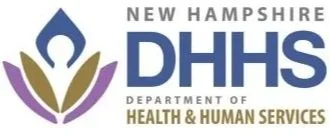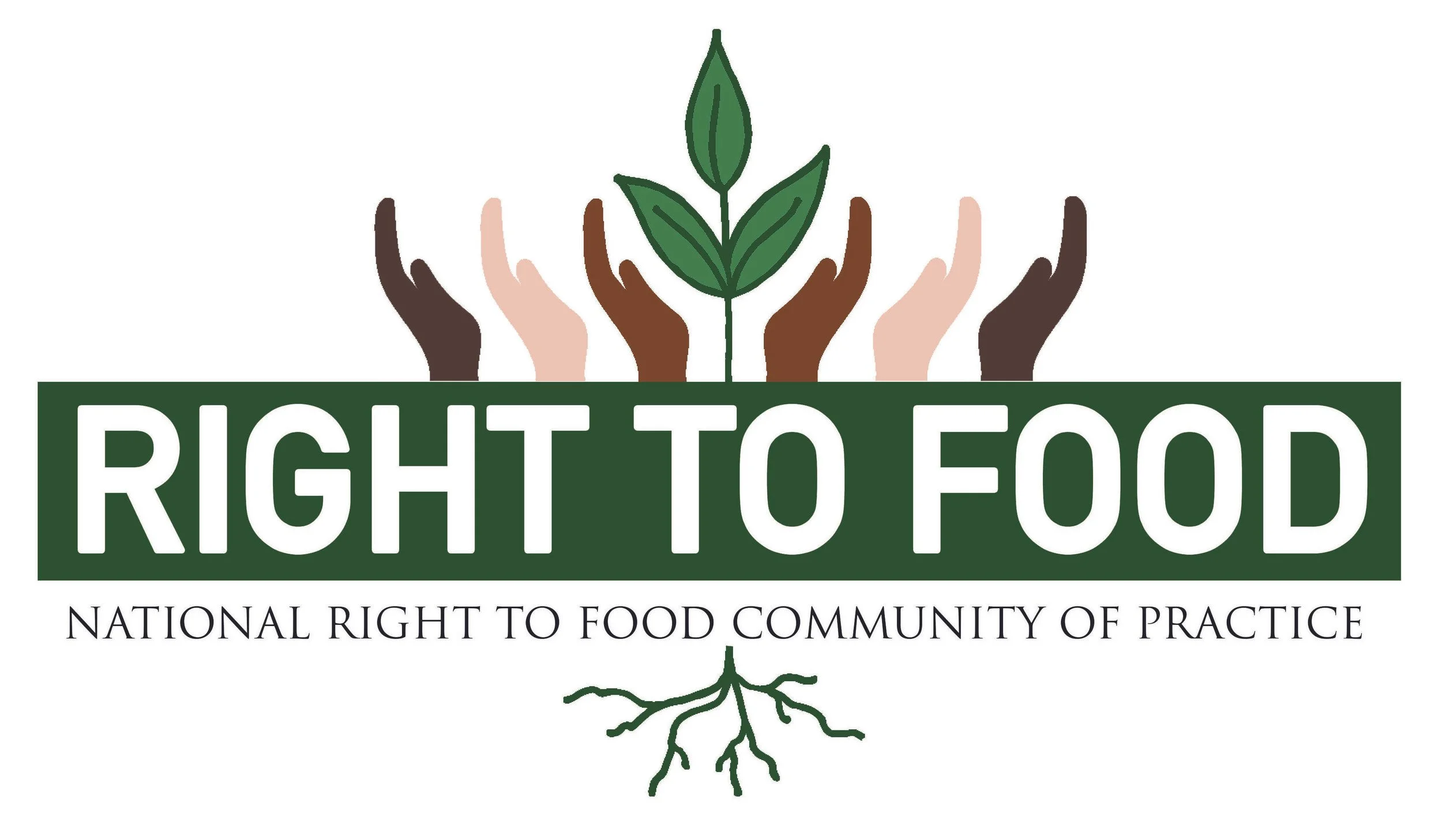
News
SNAP strengthens kids, families, and the local economy
Elsy Cipriani & Laura Milliken, Jan 22nd, 2026
The Supplemental Nutrition Assistance Program (SNAP) is more than just food assistance — it is a vital tool that keeps New Hampshire stable. Think of it as a community insurance policy. It protects hard-working families when life takes an unexpected turn, like a sudden illness or a job loss, and helps the local economy stay strong during tough times. There are many myths about who uses SNAP and.... Read More
NH Nonprofits Brace for Tough Times
Paul Cuno-Booth, December, 2025
Portsmouth-based food pantry Gather had big plans this year. It moved into a new, larger facility, and was poised to expand its Seacoast Waste Not collection program, which picks up food from restaurants, caterers and food manufactures that would otherwise go to waste. A $347,000 EPA grant would have allowed it to get another refrigerated box truck on the road, meaning more food could be collected from more restaurants and turned into healthy meals for families in need.
Then the Trump administration abruptly shut down the grant program, an environmental justice initiative created by Congress as part of the 2022 Inflation Reduction Act.
“We were told that we were awarded it, and almost in the same breath, we were told that the funds had been frozen and then ultimately terminated,” says Gather Executive Director Anne Hayes.
The Trump administration’s push to slash billions.... Read More
Trump administration will use SNAP contingency fund to pay partial food stamp benefits
Melissa Quinn & Stefan Becket, November 3, 2025
Washington — The U.S. Department of Agriculture told a federal court that it will tap into a contingency fund to allow states to issue partial November benefits under the Supplemental Nutrition Assistance Program during the government shutdown.
In a declaration submitted to the U.S. District Court for the District of Rhode Island, Patrick Penn, a Department of Agriculture official who oversees SNAP, said the administration "intends to deplete SNAP contingency funds completely and provide reduced SNAP benefits for November 2025."
There is roughly $4.6 billion in the contingency fund that can be used to cover November benefit payments, according to Penn. Officials have said fully covering those benefits would require roughly $9 billion. The $4.6 billion will be used to "cover 50% of eligible households' current allotments," Penn said.
More than 42 million Americans rely on SNAP to buy food, and the program ran out of funding over the weekend due to the ongoing shutdown. The federal government funds SNAP by sending money to the states, which oversee food stamp programs for their residents.
Justice Department lawyers separately told the court that the administration will .... Read More
SNAP benefits will restart, but will be half the normal payment and delayed
Maria Godoy & Jennifer Ludden, November 3, 2025
The Trump administration says it will restart SNAP food benefits but that it will pay out only half the amount people normally get.
The administration says it will use money from an Agriculture Department contingency fund. The $5 billion in that fund falls well short of the full cost of SNAP benefits — $8 billion — each month. In a court filing, officials said depleting that fund means "no funds will remain for new SNAP applicants certified in November, disaster assistance, or as a cushion against the potential catastrophic consequences of shutting down SNAP entirely."
The decision comes after two federal judges ruled that freezing payments for the country's biggest anti-hunger program is unlawful, even as the money ran out this weekend for the 42 million people who rely on SNAP to put food on the table. The government's response is part of the case in Rhode Island.... Read More
States sue Trump administration to keep SNAP benefits during government shutdown
Dan Mangan, October 28, 2025
A group of more than two dozen states sued the Trump administration on Tuesday, seeking to maintain funding of so-called SNAP benefits during the ongoing federal government shutdown.
The suit was filed four days after the Trump administration said it would not use emergency funding to maintain benefits during the shutdown from the Supplemental Nutrition Assistance Program, which provides food stamps to more than 40 million Americans.
The U.S. Department of Agriculture has said that SNAP benefits will cease Saturday, the lawsuit noted.
“Because of USDA’s actions, SNAP benefits will be delayed for the first time since the program’s inception.”... Read More
Experts say feds ‘hiding the evidence’ by eliminating key food security survey
Eesha Pendharkar, October 27, 2025
Anti-hunger organizations say they are flying blind as they scramble to address growing food assistance needs after the U.S. Department of Agriculture canceled a longstanding food insecurity survey last month.
Groups across the country and in Maine have long used the Household Food Security Report, started under former President Bill Clinton, to measure rates of food insecurity and say it’s an essential tool to understand the scope of hunger in order to address it, according to four experts who spoke to Maine Morning Star.
But the USDA announcement canceling the survey said the program has “failed to present anything more than subjective, liberal fodder.”
“This data was really important to have an understanding of what the situation is with food insecurity in every community and, without it, it’s really hard to know for anti-hunger organizations whether the work that we’re doing is having any meaningful impact,” said Anna Korsen, deputy director at Full Plates, Full Potential... Read More
Feds to New Hampshire: Snip SNAP or pay us back
By Andrew Cline, October 24, 2025
On Thursday, the state Department of Health and Human Services (DHHS) announced a plan to deliver food to New Hampshire food stamp recipients should the federal government shutdown continue into November.
The partnership with the New Hampshire Food Bank was announced just 13 days after the U.S. Department of Agriculture warned states that funding for the Supplemental Nutrition Assistance Program (SNAP) would not cover all obligations in November if Congress doesn’t reopen the government.
The short-term fix shows that the state DHHS can respond quickly to solve problems under pressure. And that’s encouraging because the state faces a longer-term SNAP problem next year if DHHS doesn’t improve the program’s administration soon... Read More
New Hampshire Secures Funding for Continuity in WIC Services During Federal Government Shutdown
October 21, 2025
Concord, NH – The State of New Hampshire has secured additional funding from the U.S. Department of Agriculture to sustain Special Supplemental Nutrition Program for Women, Infants, and Children (WIC) services amid the federal government shutdown. This funding will allow New Hampshire WIC families to continue redeeming food benefits until at least November 7.
“We have secured critical funding to continue the WIC program and ensure moms and children in our state can buy food, formula, and other critical needs,” said Governor Kelly Ayotte. “My office and DHHS are monitoring the impact of a prolonged shutdown on programs like WIC and SNAP, and we will work to ensure our most vulnerable citizens get the support they need. It is past time for our leaders in Washington to come to an agreement and open the government so we can continue to serve Granite Staters who depend on these programs.” Read More…
Veterans, rural residents, older adults may lose food stamps due to Trump work requirements
By Kevin Hardy, October 22 2025
States are rushing to inform some residents who rely on food stamps that they will soon be forced to meet work requirements or lose their food assistance.
Recent federal legislation ended exemptions to work requirements for older adults, homeless people, veterans and some rural residents, among others. A rapid timeline to put the changes into effect has sparked chaos in state agencies that must cut off access if residents don’t meet certain work, education or volunteer reporting requirements.
States are implementing these permanent changes to the Supplemental Nutrition Assistance Program — commonly called food stamps — amid the uncertainty of the federal government shutdown. The budget impasse could result in millions of Americans not getting their SNAP benefits next month if money runs out. But even before the shutdown, states were assessing the new work rules for food stamps — the first in a wave of cutbacks to the nation’s largest food assistance program required under President Donald Trump’s major tax and spending law enacted in July. Read More…
NH officials fear SNAP funding won’t come amid government shutdown over Democrats’ funding demands
By William Skipworth, October 15, 2025
As the federal government remains closed over Senate Democrats’ health funding demands, Gov. Kelly Ayotte said the prospect of New Hampshire’s SNAP program halting keeps her up at night.
Earlier this month, the federal government shut down after the Senate failed to pass a spending plan. Republicans proposed a plan that would’ve kept funding largely at current levels. Democrats rejected that plan, saying they won’t vote for a package that doesn’t extend a set of tax credits used by Americans to purchase health coverage on HealthCare.gov that are set to expire in December. The Democrats put forth a spending plan that extends those subsidies and reverses many of the spending cuts Republicans instituted through the One Big Beautiful Bill Act in July, at an additional cost of roughly $1 trillion. The sides could not reach an agreement before Oct. 1, causing all nonessential federal government services to cease. Read More…
By Joanne Burke & Janet Poppendieck, October 7th, 2025
On September 20, 2025, the USDA announced the termination of the annual Economic Research Service (ERS) Household Food Security Report, and placed the staff members responsible for this yearly analysis of data collected by the Census Bureau on administrative leave. This action should be of concern to all members of the National Right to Food Community of Practice, and we invite you to lend your voices to efforts to reverse this troubling decision (see Take Action ideas below). The termination of the Household Food Security Report obscures our ability to follow and know how many people will be negatively affected by the dramatic cuts to SNAP and other entitlements that passed through U.S. Congress this summer. This annual extensive analysis has served state, regional and national elected officials and community advocates from both sides of the aisle for 30 years. Read More…
Hungry for Food Security Data and Analysis: Losing Public Information Weakens our Right to Food
‘We need to know who’s hungry’: NH advocates react to the end of the USDA food insecurity survey
By Kate Dario, September 29, 2025
Earlier this month, the U.S. Department of Agriculture announced it was cutting its annual survey tracking hunger across the US.
“These redundant, costly, politicized, and extraneous studies do nothing more than fear monger,” the department said in a press release.
But local advocates say this data provides crucial information on how to best fight food insecurity and has long enjoyed bipartisan support.
“The statement from the USDA was really, really concerning because it made it seem like this was some kind of a partisan report, which is just not true,” said Laura Milliken, the director of N.H. Hunger Solutions. “It is the gold standard of health reporting. It is well respected on both sides of the aisle.”
Milliken says the data gathered is used to better understand if certain strategies to expand food access are working.
“If we're trying to solve hunger in our state or in our country, we need to know who's hungry,” Milliken said… Read More
Hunger organizations warn federal cuts to SNAP funding impose costs ‘New Hampshire simply cannot afford’
By Jane Miller, September 1st 2025
Federal changes to the Supplemental Nutrition Assistance Program could cost New Hampshire an additional $14 million over the course of the next two years.
President Donald Trump’s budget reconciliation bill shifted the responsibility to fund of a portion of SNAP, also known food stamps, to individual states, a cost hunger relief advocates in New Hampshire say the state is not prepared to shoulder. Read More…
NH DHHS Announces Availability of Summer EBT
By NHDHHS, July 21st 2025
Concord, NH – The New Hampshire Department of Health and Human Services (DHHS), Division of Economic Stability is pleased to announce that New Hampshire will continue to deliver the Summer Electronic Benefits Transfer (Summer EBT) program, providing New Hampshire families with eligible school-aged children grocery benefits to purchase food during the summer months when school meals are not available. DHHS has received funding from the U.S. Department of Agriculture (USDA) to participate in Summer EBT for a second consecutive year.
Summer EBT aims to provide access to nutritious food during the summer months, ensuring that eligible children in New Hampshire can continue to access critical nutrition when school is not in session. School-aged children who attend a school enrolled in the National School Lunch Program/School Breakfast Program (NSLP/SBP) and are eligible to receive free or reduced-price meals are also eligible for Summer EBT, which totals $120 per eligible child. …Read more here
NH Farm to School Aims to Build Appetites for Fresher Foods and Local Connections
By Ethan DeWitt, July 21st 2025
Robie Farm has raised beef, pork, and poultry in Piermont since 1870. Twelve miles up Route 10, sandwiched between the Connecticut River and the Appalachian Trail, the Haverhill Cooperative Middle School has served lunches to adolescents since 1968.
But due to the complicated and frugal economics driving school meal supplies, the farm has never been a natural supplier to the school district up the road. Amid the thorny, balance-sheet-driven purchase decisions year after year, beef and chicken from out of state typically win the day..…Read more here
A New Era of Hunger Has Begun
By Tracy Kidder, July 20th 2025
Mr. Kidder is a Pulitzer Prize-winning writer. He reported from Massachusetts.
Parts of Easthampton, an old mill town in western Massachusetts, look like relics of industrial New England — the old workers’ rowhouses, for instance. In other parts, it seems like a place in renaissance, with converted factory buildings spruced up and reinhabited by art galleries, restaurants, shops. Pedestrians fill the sidewalks on Friday and Saturday nights, especially during monthly art walk evenings. But on Monday mornings, when the downtown feels shuttered, another sort of crowd, one in search of food, not art and entertainment, gathers on a side street outside a 19th-century brick building. A sign out front identifies it as the Easthampton Community Center and Food Pantry.
The center distributes free groceries on Mondays and Wednesdays, but Monday is usually busier because many people it serves have run out of food by then. By 9 a.m. on a Monday in June, a line of people with shopping bags extended from the sidewalk across the parking lot to the first of the food stations alongside the old building. There, clients are greeted by volunteers with friendly faces and helpful voices, offering milk and eggs, a selection of breads and pastries, frozen meat, fruit and vegetables. Inside, another team of volunteers assembles bags of canned and packaged food, some for adults, others for children.
The director of the well-organized commotion is Robin Bialecki, a white-haired woman of 71. Ms. Bialecki started as a volunteer 25 years ago and has managed the operation for the last 17. She’s the only paid employee; she works every day except Christmas and makes $32,400 a year. She had planned to retire but has stayed on to help everyone through what now seems like the unraveling of the country’s defenses against unnecessary illness and hunger…Read More
Congress passed Trump’s massive ‘big beautiful bill.’ Here’s how New Hampshire will feel it.
By William Skipworth, July 14, 2025
When Michelle Lawrence heard about the Medicaid cuts included in the Republican tax and spending bill signed into law on July 4, it felt like “a punch to the gut.”
“I laugh, because if I don’t laugh, I cry,” she said.
Lawrence, who lives in Henniker, was diagnosed with a chronic form of cancer called T-cell lymphocytic leukemia 16 years ago. She said she lost her job about five years ago because the cancer was making it too difficult for her to work. And in losing her job, she lost her health insurance because she couldn’t afford COBRA coverage or anything on the marketplace.
“So I applied for Medicaid, which has been a major lifeline for me,” she continued. “That has enabled me and a lot of other cancer patients like me to be able to access the treatment needed in the past few years. I’m here. I’m alive and a contributing member of society. … Without Medicaid, I wouldn’t be able to afford my treatments or go to the doctor.”
Lawrence works 40 hours a month at a nonprofit assisting people with disabilities. Between the symptoms of her cancer and the side effects of her treatment, she can’t work any more than that, she said. But the “big beautiful bill” adds a work requirement to Medicaid that requires people to work 80 hours per month to receive coverage…Read More

NHHS Statements
USDA’s Decision to End Food Insecurity Report Blinds Policymakers to Growing Hunger Crisis
CONCORD, NH – September 25, 2025 – New Hampshire Hunger Solutions today released a statement in strong opposition to the U.S. Department of Agriculture’s (USDA) decision to terminate the annual Household Food Security Report. This critical report, which has provided the official measure of hunger in America for decades, is being ended at a time when food insecurity is on the rise. Read more…

Keep up-to-date by following us on social media












